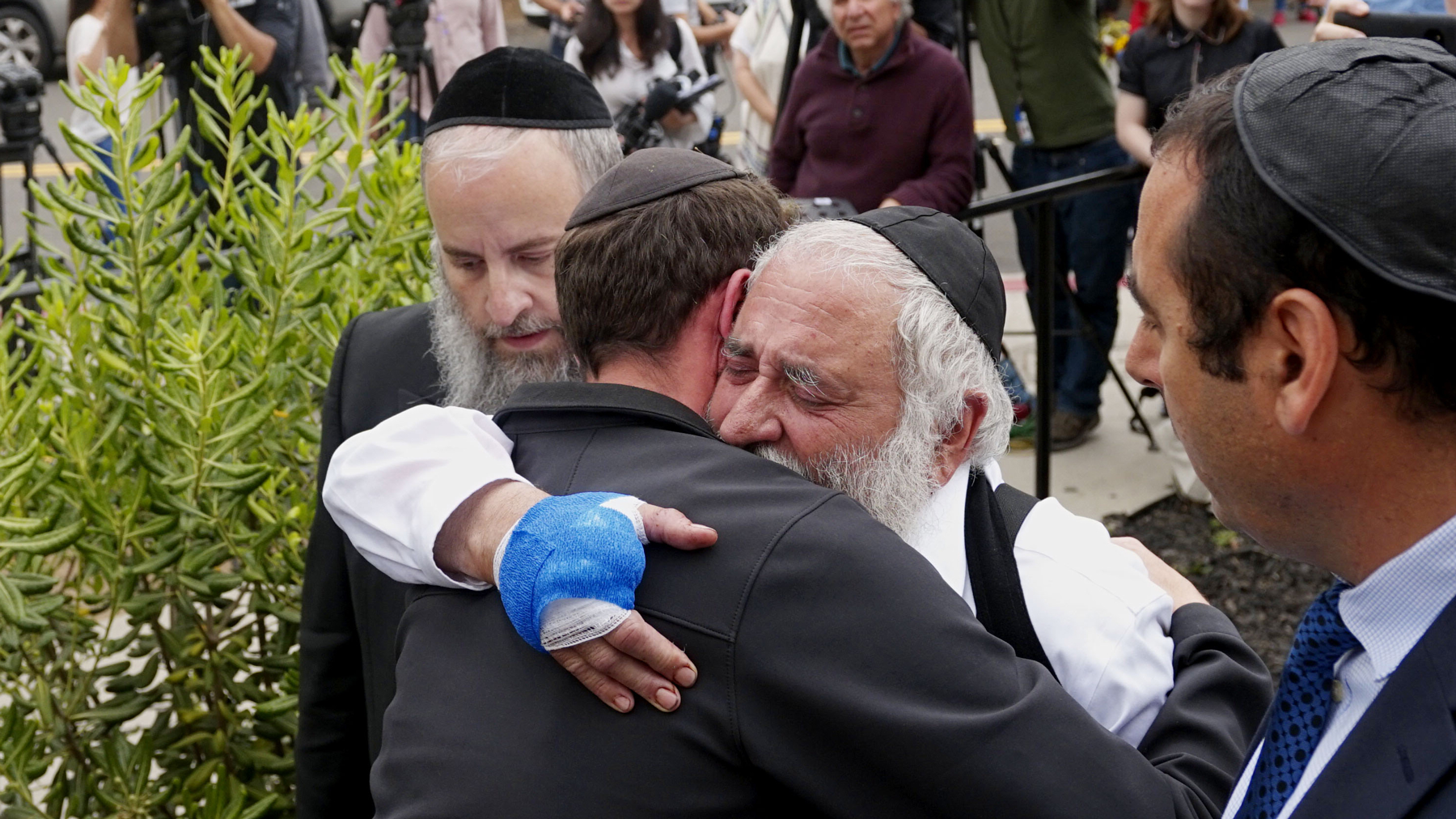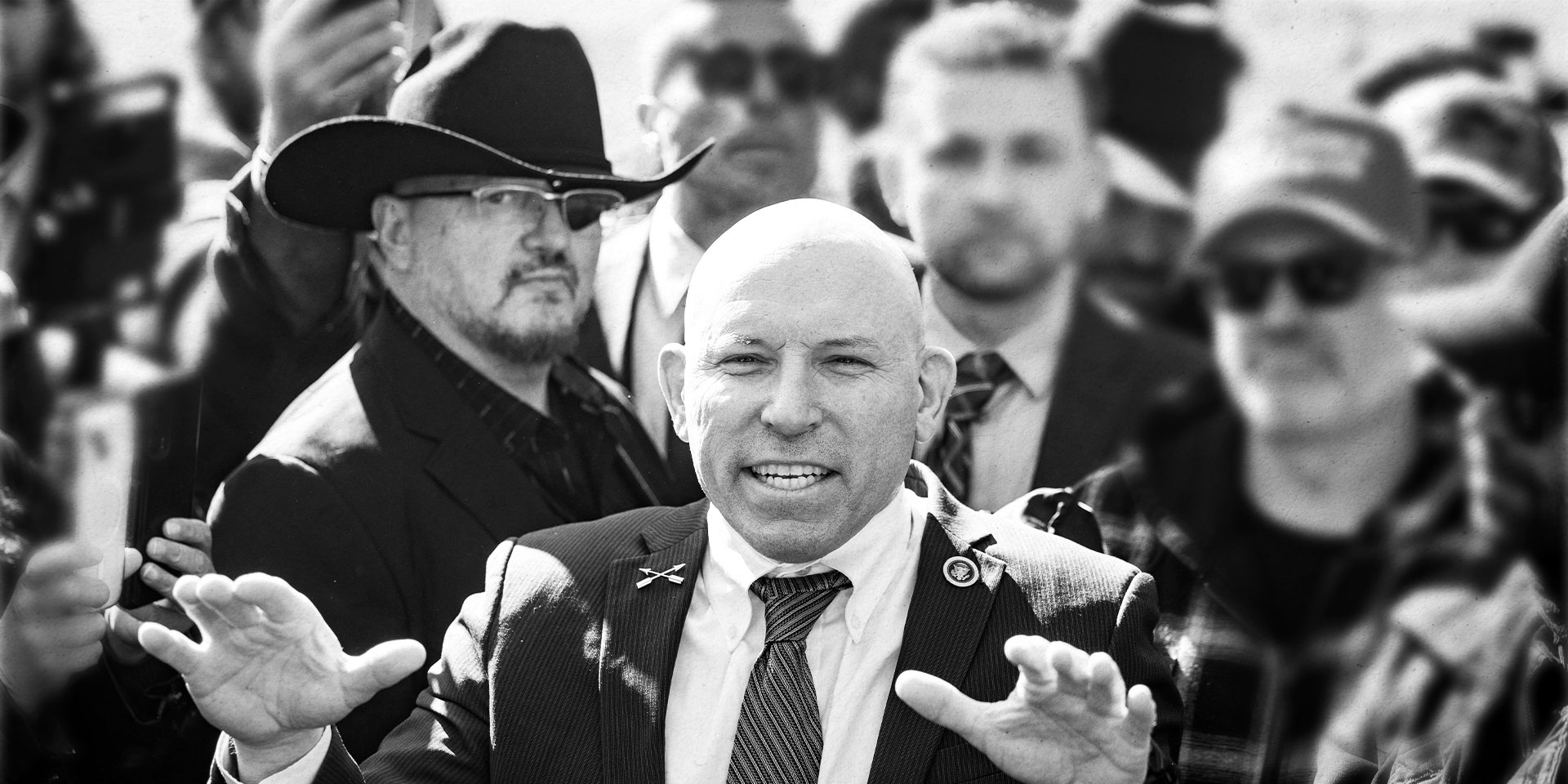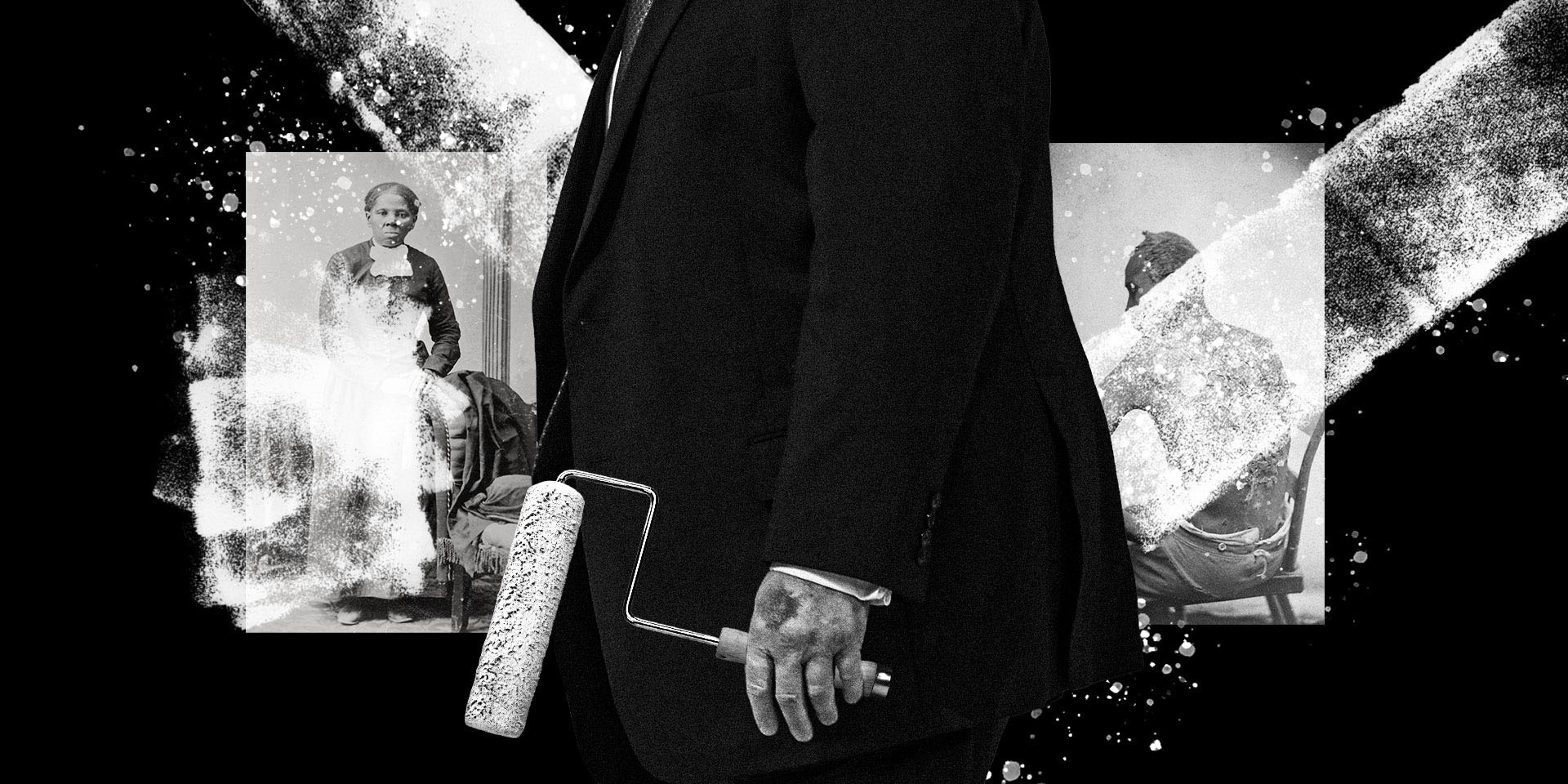A shooting in a California synagogue in which police say a 19-year-old man killed one and injured three others underscores a link between online radicalization of white supremacists and terroristic violence.
Police identified the attacker as John T. Earnest, who they said entered the Chabad of Poway synagogue in Poway, California, during Passover celebrations Saturday and opened fire using an AR-15. Chabad member Lori Gilbert Kaye, 60, died from injuries. Three others were injured in the shooting.
Earnest hails from the San Diego neighborhood of Rancho Peñasquitos, according to the Los Angeles Times.
Before the attack, Earnest posted what he described as an “open letter” on the white supremacist-friendly forum 8chan, according to NBC News. The man accused of murdering 50 Muslim worshippers in Christchurch, New Zealand, in March also uploaded a statement before the shootings. And like the alleged New Zealand terrorist, Earnest’s statement was steeped in white supremacist tropes and inside jokes commonly shared in their online communities, based upon Hatewatch’s analysis of the document. Earnest’s statement also included the hallmarks common among radicalized white supremacists, such as adulation of suspected or convicted mass murderers and propagation of the false claims of a global plan to replace white people.
For example, Earnest praised the carnage in Christchurch, New Zealand, in his statement, citing that live-streamed act of violence as an influence on his own attack. He mentioned the name of the accused terrorist 10 different times in his statement.
“[The New Zealand attacker] was a catalyst for me,” he wrote of the attack that killed 50 people in two mosques. “He showed me that it could be done. It needed to be done.”
Earnest also referenced Robert Bowers in his statement. Bowers is the man accused of killing 11 Jewish people in a terror attack on Tree of Life synagogue in Pittsburgh, Pennsylvania, in October 2018. Bowers similarly possessed an intimate connection to the world of online radicalization. He posted a brief message to other white supremacists on the fringe social media website Gab on the same morning he allegedly opened fire in the synagogue.
“Genocide of the European race”
White supremacists commonly blame Jewish people for what they call “white genocide,” a false and pervasive conspiracy theory suggesting white people are deliberately and systematically being replaced by other races. Earnest appeared to address this trope in his personal statement by claiming that Jews are responsible for a “meticulously planned genocide of the European race.”
The men arrested for carrying out the terror attacks in Pittsburgh and Christchurch espoused that same conspiracy theory.
Beyond fringe online platforms like 8chan, Gab and, the similar but more high-traffic forum, 4chan, the ideas behind the “white genocide” conspiracy theory are promoted by pundits with hundreds of thousands of followers on Twitter, such as Stefan Molyneux and Lauren Southern. It’s also promoted by high-traffic white supremacist websites of the “alt-right” movement like “ The Daily Stormer,” “Goy Talk,” and “ The Right Stuff” podcast network.
But the false claim isn’t limited to the fringe. Fox News’ commentator Tucker Carlson warned viewers during his program, “Tucker Carlson Tonight,” in October 2018 that a college professor from Georgetown was advocating for the “genocide” of white men. Carlson’s show, which frequently depicts immigration as a threat to Americans, reaches more than three million viewers per night, according to Nielsen ratings taken in March 2019.
A pattern of lionizing killers and accused killers
Earnest’s professed admiration for the alleged Christchurch killer and Bowers follows a growing trend in far-right extremist propaganda of lionizing murderers, terrorists or people accused of committing those crimes who promote white supremacist beliefs.
For example, white supremacists sometimes share memes depicting as “saints” terrorists like Timothy McVeigh, the man who killed 168 people and injured close to 700 more when he bombed the Alfred P. Murrah building in Oklahoma City in 1995; Dylann Roof, the man who murdered nine black churchgoers in Charleston in 2015; and Anders Breivik, the Norwegian terrorist who murdered 77 people in 2011.
The meme creators typically write something like “Saint Breivik” in the text portion of the meme to convey veneration for the mass murderer. More recently, Bowers and the alleged Christchurch terrorist have received similar meme treatment by white supremacists. The “saint” meme first gained popularity in another violent internet subculture – involuntary celibates or “incels.” The moniker has been applied to killers incels believe were acting on behalf of their cause. Some incels refer to Elliot Rodger, who killed six and injured 14 in Isla Vista, California in 2014, as their “patron saint.”
A week before the attack in San Diego, a Twitter user with more than 2,000 followers going by the handle @EvilHonkler used such language. That Twitter user wrote, “Saint Breivik was a LARPing WigNat until he wasn’t.”
LARPing, or live action role play, connotes the idea that someone is pretending to be someone they aren’t. Wignat is derogatory slang used by some white supremacists to mock working-class white men for bringing embarrassment to the movement. The statement suggests that any white supremacist can go from merely posting online anonymously to carrying out a terror attack in real life.
“Saint [Dylann] Roof was a LARPing WigNat until he wasn’t,” @EvilHonkler also wrote in a series of separate tweets. “Saint McVeigh was a LARPing WigNat until he wasn’t.”
Twitter suspended the @EvilHonkler account Saturday.
After the Poway attack, Andrew “Weev” Auernheimer, who writes for and provides technical support to The Daily Stormer, wrote Saturday in a private forum for that website that white supremacists should build monuments to men like Earnest.
“They’re all getting statues,” he wrote of men who commit or are accused of committing acts of terror in the name of a white supremacist ideology. “It’s definitely the wrong thing, but they’re all still heroes. Fools, but still heroes and martyrs.”
Incidents of arson and suspected arson
Earnest boasted in his public statement about setting fire to a mosque in Escondido, California, without getting caught by police. The Islamic Center of Escondido, which is close to San Diego, was set on fire on March 24, according to police, who are investigating the incident as a potential hate crime.
“[Police] didn’t report the message I spray-painted on the parking lot,” Earnest wrote. “I wrote ‘For [the accused New Zealand terrorist] -t. /pol/’).”
The abbreviation “/pol/” refers to subsections of both 8chan and 4chan where white supremacists often congregate and share memes linked to the internet radicalization of white supremacists.
Arson attempts on mosques, like the one in Escondido, have occurred elsewhere in the U.S. in 2019. For example, a man attempted to burn down the North Austin Muslim Community Center in Austin, Texas, on April 23.
Earnest’s boast of leaving behind graffiti at the scene of a place where he attempted to commit arson bears a striking similarity to an incident that happened in Tennessee in March of 2019. There, someone left behind a white supremacist symbol in the immediate vicinity of a building owned by the Highlander Education and Research Center that was burned down, according to a statement made by that civil rights organization.
Police have not designated the Highlander Center fire as arson but were investigating the blaze along with the local Fire Marshall’s office earlier this month. The Highlander Center once hosted civil rights icons like Martin Luther King Jr. and Rosa Parks.
The déjà vu sensation of online radicalization
Analysts at the Southern Poverty Law Center assert that while white supremacists may not always convene in a physical space, they are convening on websites and internet subcultures where they regularly plan and promote violence – activity that has repeatedly manifested in a physical space.
Others who monitor these online extremist spaces agree. The New York Times tech columnist Kevin Roose said in March while speaking about the New Zealand attack on the podcast “The Daily,” “I think we’re still coming to terms with the fact that there’s this pipeline of extremism, and we know how it runs and we know where it happens. We know who is involved, and we know that sometimes it has these devastating, tragic consequences.”
Earnest referenced the feelings of familiarity around this type of attack in his statement, writing of those who report on extremists, “Make sure to call me a ‘white supremacist’ and ‘anti-semite’ … [those words have] lost all their meaning.”
Photo by Sandy Huffaker/Getty Images/AFP
Editor’s Note: New Zealand Prime Minister Jacinda Ardern asked the public not to use the name of the alleged Christchurch terrorist in the aftermath of that attack, which is why Hatewatch omitted that man’s name. Hatewatch typically uses the names of terrorists and accused terrorists because our publication specializes in providing intelligence about extremists who commit acts of terror, like the murder in Christchurch.






